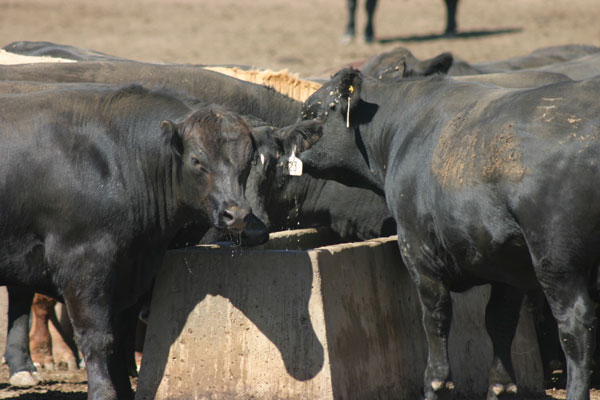April 29, 2019

R-CALF USA and four cattle-feeding ranchers from Iowa, Nebraska, Kansas and Wyoming filed a class action lawsuit in federal district court in Chicago on April 23, 2019, alleging the nation's four largest beef packers violated U.S. antitrust laws, the Packers and Stockyards Act, and the Commodity Exchange Act by unlawfully depressing the prices paid to American ranchers. Scott+Scott Attorneys at Law LLP, a national antitrust and securities litigation firm, along with Cafferty Clobes Meriwether & Sprengel LLP, which has experience representing trading firms, brokers, advisors, investors, businesses and individuals in complex antitrust, commodities, securities, consumer and commercial litigation, are representing the plaintiffs.
The complaint was filed against Tyson Foods, Inc., JBS S.A., Cargill, Inc., and National Beef Packing Company, LLC, and certain of their affiliates, who collectively purchase and process more than 80% of the U.S.'s fed cattle. It alleges that from at least Jan. 1, 2015, through the present, the packers — called the Big 4 in the suit — conspired to depress the price of fed cattle they purchased from American ranchers, thereby inflating their own margins and profits.
The class action lawsuit seeks to recover the losses suffered by two classes believed harmed by the packers alleged conduct. The first class includes cattle producers who sold fed cattle to any one of the four companies from January 2015 to the present. The second class consists of traders who transacted live cattle futures or options contracts on the Chicago Mercantile Exchange from January 2015 to the present.
The complaint, which is supported by witness accounts, including a former employee, trade records, and economic evidence, alleges that the companies conspired to artificially depress fed cattle prices through various means, including:
collectively reducing their slaughter volumes and purchases of cattle sold on the cash market in order to create a glut of slaughter-weight fed cattle;
manipulating the cash cattle trade to reduce price competition amongst themselves, including by enforcing an antiquated queuing convention through threats of boycott and agreeing to conduct substantially all their weekly cash market purchases during a narrow 30-minute window on Fridays;
transporting cattle over uneconomically long distances, including from Canada and Mexico, in order to depress U.S. fed cattle prices; and
deliberating closing slaughter plants to ensure the underutilization of available U.S. beef packing capacity.
These alleged practices are estimated to have depressed fed cattle prices by an average of 7.9% since January 2015, causing significant harm to U.S. ranchers.
In a media statement concerning the lawsuit, Bill Bullard, chief executive officer, R-CALF USA, said the group was taking the action to “fulfill its promise to its members to prevent the Big 4 packers from capturing the U.S. cattle market from independent U.S. cattle producers.” He added that the organization had exhausted other remedies but was moving ahead with the help of the two law firms to have member concerns addressed.
In the same statement, David Scott, managing partner, Scott+Scott added: "The impact of the packers' conduct on American cattle ranchers has been catastrophic. The health and integrity of the American cattle industry is being permanently and irrevocably damaged, independent ranchers are systematically being driven out of business, and consumers are losing the ability to buy high-quality American beef with confidence."
Anthony Fata, partner, Cafferty Clobes, explained that the packers alleged conduct has had a direct impact on commodities underlying Chicago Mercantile Exchange live cattle futures and options contracts. "It is imperative for investors to maintain confidence in this vital financial market, relied upon by ranchers, traders and others to manage the risks associated with their businesses,” he said.
Source: R-CALF USA, which is solely responsible for the information provided and is wholly owned by the source. Informa Business Media and all its subsidiaries are not responsible for any of the content contained in this information asset.
Related content:
In a statement, Tyson Foods said it will “vigorously defend” itself and called the suit an “attempt by attorneys to make money for themselves.” “As with similar lawsuits concerning chicken and pork, there’s simply no merit to the allegations that Tyson colluded with competitors.” – Feedstuffs
The Mercantile is not accused of any wrongdoing. The suit was assigned to Judge John Tharp Jr., the Chicago Sun Times reported.
The 104-page complaint resembles litigation in the same court in which companies are accused of conspiring to fix prices of broiler chickens and pork. – Reuters
Factors outside the meatpackers’ control influenced pricing during that time frame, including drought across the south, according to Keith Belk, a meat-safety and quality professor at Colorado State University. – Northwest Arkansas Democrat Gazette
You May Also Like




